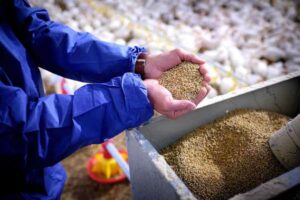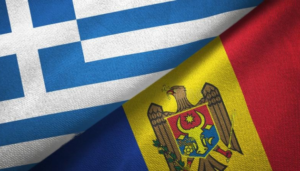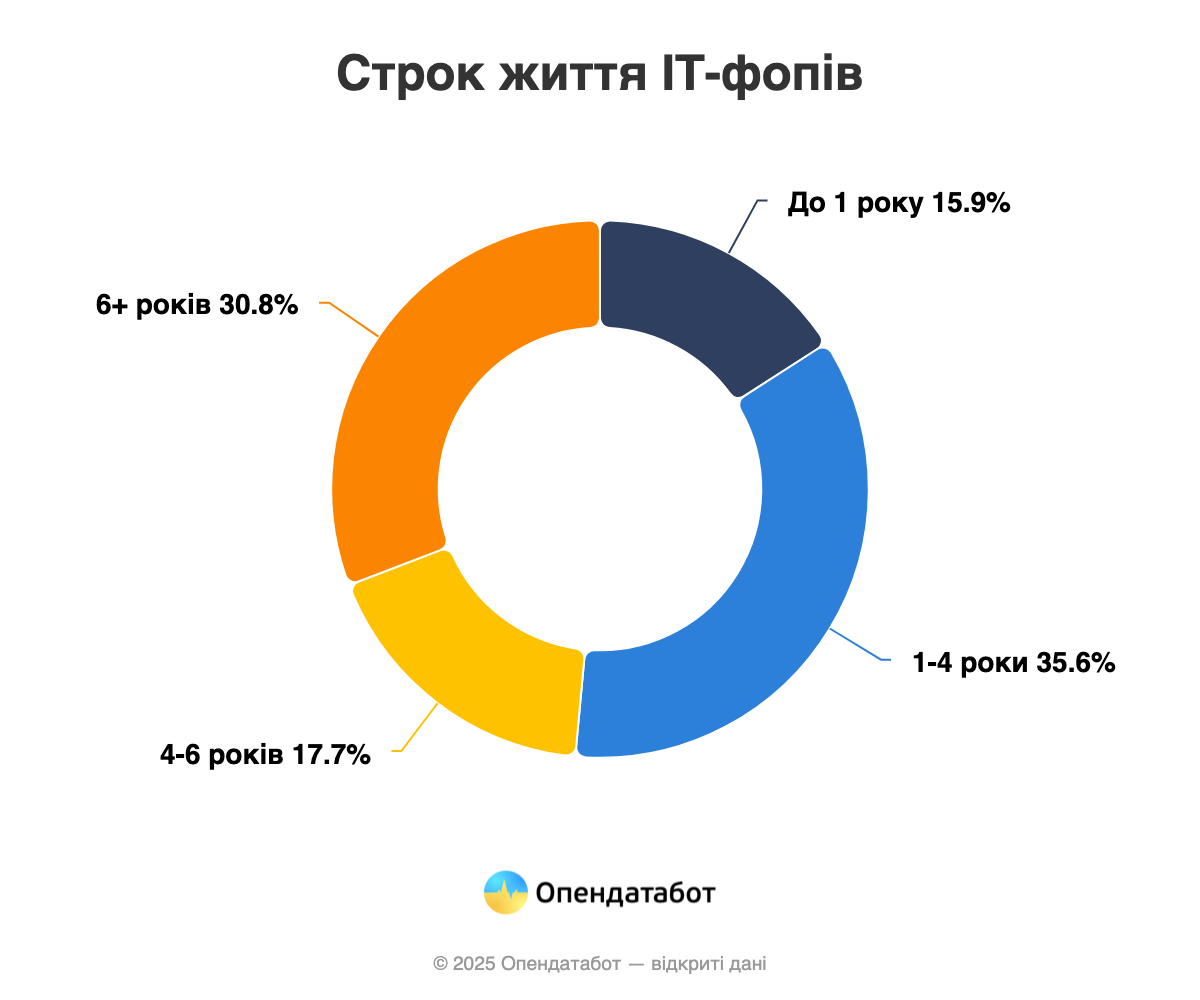
Khorol Mechanical Plant (Ukraine) has begun the process of localizing production in Turkey, according to the information and analytical agency APK-Inform, citing information from Valentin Surmach, director of the technical department at KMP.
“Taking into account the successful experience of joint implementation of complex projects, Izvik Makina Muhendislik Ic Ve Dis Ticaret Limited Sirketi has been selected as the main partner in the localization process,” he said at the AgroFood Summit-2025 international conference (Mersin, Turkey).
According to him, the localization stages include large-scale assembly, equipping products with electric motors and gear motors from Turkish manufacturers, and the phased organization of the production of components and parts in Turkey, including on the basis of outsourcing (by mutual agreement).
The plant confirms the warranty for equipment manufactured in the localization process, as well as the technical parameters of the technological lines based on the plant’s equipment, which Izvik Makina offers to its customers.
Khorol Mechanical Plant is a Ukrainian enterprise specializing in the manufacture of equipment for grain storage and cleaning; production of mixed fodder, cereals, flour, oil, seed material; aspiration systems; mechanical grain transportation; production of fuel pellets, briquettes, etc.

PJSC Central Mining and Processing Plant (CGZ, Dnipropetrovsk region), part of the Metinvest Group, increased its net loss by 3.5 times to UAH 1 billion 704.103 million in January-September this year, compared to UAH 520.593 million in the same period last year.
According to the company’s interim report, which is available to Interfax-Ukraine, the loss in the third quarter amounted to UAH 559.581 million.
In the first nine months of this year, the company increased its revenue by 10.9% to UAH 12.470708 billion.
Retained earnings at the end of September 2025 amounted to UAH 4.164960 billion.
In the first nine months of 2025, commercial production amounted to 2.062 million tons of concentrate (up 545,100 tons, or 35%, compared to 2024) and 1.692 million tons of pellets (up 28,600 tons, or 2%, compared to 2024). During the reporting period, 99.34% of products were supplied to the domestic market.
As part of the implementation of the plant’s capital investment program in Q1-Q3 2025, measures were taken to maintain production capacity, upgrade infrastructure, improve the efficiency of technological processes, and ensure the stable operation of the main production units. In accordance with the plant’s development program and within the established limits, railway tracks were re-laid and a railway track was built at the Grekukata station. Unloading station – Grekukata station; construction and installation work continued in the chamber of the section substation and tunnels as part of the project to provide power to the 607 m horizon of the Kolachevsky mine, and the construction of ort-entrances and the installation of vibrating rock loading units is also continuing.
In addition, work is underway to expand the tailings dam to a height of 129 m; measures are continuing to remove topsoil from the Artemivsk quarry; work is being carried out to modernize the cable communication infrastructure of the plant and the local computer network (Gleyuvatka fiber-optic communication line); major repairs of the washing facilities of the crushing plant, the Kolachevsky mine, and the Petrivsky quarry are continuing; During the plant’s daily shutdown, d1200 mm gates were replaced.
The plant ended 2024 with a net loss of UAH 648.004 million, compared to UAH 1 billion 326.661 million in 2023. In 2022, the company reduced its net profit more than fourfold, to UAH 2 billion 117.831 million from UAH 8 billion 919.978 million in 2021. In 2020, TsGZK increased its net profit by 8.7% compared to the previous year, to UAH 1.601 billion.
CGZK is one of the five largest producers of mining raw materials in Ukraine, specializing in the extraction and production of iron ore raw materials (concentrate and pellets). The average number of full-time employees is 3,360.
Metinvest B.V. owns 100% of the shares in ChGOK.
The authorized capital of PrJSC ChGOK is UAH 296.635 million, with a share par value of UAH 0.25.
CGZ is part of the Metinvest Group, whose main shareholders are PJSC System Capital Management (SCM, Donetsk) (71.24%) and the Smart Holding group of companies (23.76%). The managing company of the Metinvest Group is Metinvest Holding LLC.

UBS analysts expect copper prices to rise next year due to reduced supply amid ongoing mine disruptions.
In addition, the rise will be supported by high long-term demand associated with the transition to clean energy and increased investment in this area, the bank said in a statement.
UBS raised its copper price forecast for the end of the first quarter of 2026 by $750 to $11,500 per ton. Expectations for June and September were raised by $1,000 to $12,000 and $12,500 per ton, respectively. Experts also set a target level for December next year at $13,000 per ton.
Analysts now believe that the copper deficit in the global market this year will be about 230,000 tons, compared to the previously expected 53,000 tons, and in 2026 – 407,000 tons, compared to 87,000 tons. In their opinion, declining inventories and ongoing supply risks will keep the market tight.
Disruptions at mines this year, including production problems at Freeport-McMoRan’s Grasberg mine in Indonesia, slower recovery of production in Chile, and recurring protests in Peru, highlight structural supply constraints that are likely to persist until 2026, the bank said in a statement.
Freeport-McMoRan said it plans to resume production at the Grasberg copper and gold mine by July after operations were suspended two months ago due to a fatal accident.
UBS lowered its forecast for refined copper production growth to 1.2% in 2025 and 2.2% next year, citing deteriorating ore quality and operational problems. Analysts expect global demand for the metal to increase by 2.8% both this year and next due to the development of renewable energy sources, electric vehicles, investments in power grids, and data centers.
The bank’s experts believe that any price decline will be short-lived and recommend maintaining long positions in copper.
Earlier, the Experts Club information and analytical center released a video dedicated to global copper production and leading producing countries – https://youtube.com/shorts/_h8iU50z8C0?si=a-XkgGEfeUxseQNa

Moldova’s National Energy Regulatory Agency (ANRE) has introduced two new routes through its gas transmission system (GTS) for gas transit from Greece to Ukraine, the regulator said.
“These products (supply services) are designed to facilitate natural gas flows from Greece to Ukraine through the Trans-Balkan infrastructure, contributing to the strengthening of regional energy security, diversify supply sources, and make efficient use of transport capacity, in accordance with the request of Vestmoldtransgaz LLC (Moldova’s GTS operator) and a joint initiative by the natural gas transmission system operators of Greece, Bulgaria, Romania, Moldova, and Ukraine,” the ANRE said in a statement.
The regulator specified that this refers to “two new special capacity products – Route 2 and Route 3, which will be available from December 2025 to April 2026.”
The new services will be offered monthly through parallel auctions on the RBP platform using a single price algorithm, with discounts applied to the tariffs of transit country operators. “The introduction of these products will increase gas transit volumes through Moldova’s transmission system and indirectly create the conditions for optimizing natural gas transportation tariffs in the future,” the statement said.
The regulator recalled that in May this year, a monthly service product called “Route 1” was introduced, designed for use at interconnection points on the Trans-Balkan pipeline connecting the natural gas transportation systems of Greece, Bulgaria, Romania, Moldova, and Ukraine.
As reported, in May this year, gas transmission system operators in Bulgaria, Greece, Moldova, Romania, and Ukraine developed a scheme for the supply of American liquefied natural gas (LNG) from Greece to Ukraine via the “Vertical Gas Corridor,” agreeing on a single tariff for gas transit with a 25% discount. The aim of the project is to ensure gas injection into Ukraine’s underground gas storage facilities in preparation for the heating season.
In July, Moldovan Energy Minister Dorin Jungiatu reported that the Moldovan state-owned company Energocom had successfully tested the delivery of LNG from the US via the Vertical Gas Corridor, pumping regasified fuel from a port in Greece to Ukraine’s underground gas storage facilities.
In early November, pipeline company ICGB, the independent operator of the Greece-Bulgaria interconnector (IGB), together with the gas transmission system operators of Greece, Bulgaria, Romania, Moldova, and Ukraine, signed an agreement to launch two new routes for the delivery of natural gas from Greece to Ukraine. The gas transmission system operators of these countries proposed to make these routes available from December 2025 to April 2026.
According to ICGB, route 2 starts at the Amphitrite interconnection point on the DESFA network, passes through the Greek-Bulgarian interconnector (IGB) and then along the Trans-Balkan corridor: Amphitrite – Komotini (IGB) – Stara Zagora – Negru Voda 1/Kardam – Isaccea 1/Orlovca – Câșcavii – Grebeni.
Route 3 starts at the IGB interconnection point with the Trans Adriatic Pipeline (TAP) and follows the same route: Komotini (IGB entry from TAP) – Stara Zagora – Negru Voda 1/Cardam – Isaccea 1/Orlovca – Câșcav – Grebeni.
The design capacity of the “Vertical Gas Corridor” in the Greece-Bulgaria direction is 3 billion cubic meters per year. The gas pipeline operator does not rule out increasing its capacity to 5 billion cubic meters, depending on market interest.

Sense Bank has started cooperation with Export Credit Agency (ECA), which opened an opportunity for exporters to get loans under the insurance coverage of the agency without providing collateral, the press service of the bank said.
According to the information, the new model of interaction provides ESA insurance of risks on export credits, which allows financing foreign trade contracts even in the absence of sufficient collateral on the part of the client. Insurance coverage reduces non-repayment risks for the bank and makes financing available to more Ukrainian exporters.
Sense Bank notes that such support is key in wartime conditions, when businesses face limited access to liquidity and external markets. Export credit insurance provides repayment guarantees, allowing companies to fulfill contracts and maintain their position in international markets.
“Sense Bank continues to expand the range of financial instruments to support Ukrainian businesses. Cooperation with ESA is a strategic investment in the country’s economic sustainability,” said Andrey Sokolov, member of the bank’s Board of Directors.
Ruslan Gashev, Head of the ESA Board, emphasized that the agency is committed to empowering Ukrainian companies despite difficult circumstances. “Even in the most difficult conditions Ukrainian business demonstrates strength. Together with Sense Bank we create opportunities for it to grow – providing trust, financial protection and access to new markets without unnecessary barriers,” he said.

In Ukraine, more IT professionals are closing their fops than opening new ones: -7.5 thousand entrepreneurs since the beginning of the year. In general, IT fops are among the longest-lived: the median life span of those who worked in computer programming and closed this year is almost 4 years. The oldest entrepreneur among those who closed this year worked for 34 years.
18,605 new sole proprietorships in computer programming appeared this year, which means that the number of newcomers to the field remained almost unchanged. Instead, existing businesses are closing more and more actively: 26,158 IT entrepreneurs have closed their operations. Overall, losses in the industry tripled over the year: 7,553 FOPs in just ten months of this year.
Traditionally, the largest number of new IT fops was registered in Kyiv (3737), Lviv (2015), Dnipro (1740), Kharkiv (1557), and Kyiv regions (1338). At the same time, only two regions maintained a positive balance – when more opened than closed -: Volyn (+19 fops) and Ternopil (+12).
Men predominate among new IT entrepreneurs – 57% of registrations, while women account for 43%. And in no region does the number of women entrepreneurs exceed the number of men – this is currently an atypical situation for Ukrainian businesses, which are mostly started by women.
The median life of an IT fop that closed in 2025 is 4 years. One in six IT fops ceases operations within the first year, and another third operate for one to four years. The oldest entrepreneur to close this year had been operating since 1991.
However, the closure of fops does not necessarily indicate a crisis in the industry, but rather a change in the way IT professionals are employed. Thus, according to DOU, 57% of IT professionals work as freelancers this year. Comparatively, a year ago, the number was 70%, and in 2022 it was 87%.
At the same time, according to Gini, the number of vacancies in the IT sector has only increased over the past year. Thus, while 72,396 job offers for IT professionals were posted in 10 months of last year, the same period this year has already seen an 11% increase in such offers: 80 297.
https://opendatabot.ua/analytics/it-foponomics-2025
